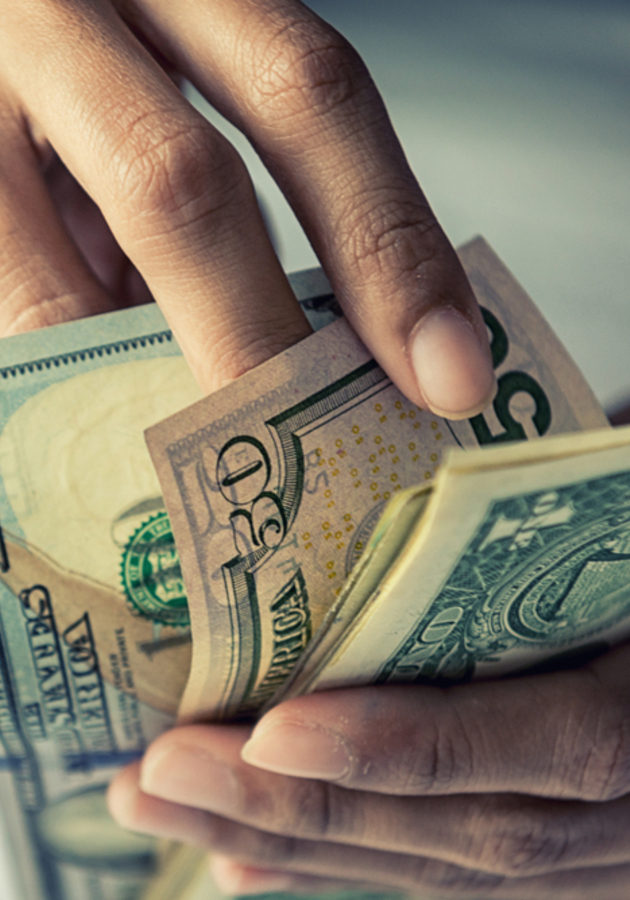Are you often being looked down upon for crying easily? Or for finding it challenging to control intense emotions like anger or worry? Are you often called shy, picky, intense, dramatic, or even high maintenance? Do you have lots of empathy toward people and animals - even if you only see them in movies? If some or even all of the answers ring true for you, don’t worry - you are not flawed or weird but sensitive. Unfortunately, in today's society, most people believe being sensitive is undesirable. However, according to Jenn Granneman and Andre Sólo, who proudly call themselves highly sensitive, sensitivity is an essential human trait tied to some of our species’ best qualities. Drawing on their own experience, the stories of other sensitive people and scientific research, they discover what it really means to be sensitive and what strengths sensitive people bring to the world. So, get ready to embrace the new vision of the world where sensitivity is seen as a gift rather than a flaw!
Can you believe Bruce Springsteen is sensitive?
The rock legend Bruce Springsteen is famous among fans for his energetic performances on stage. As one critic wrote, when Springsteen plays a show, barns are burning, bombs are dropping, ceilings are cracking, and ozone is splitting. So, no wonder he is a symbol of a tough and rebellious American whose spirit, as his song says, offers ‘’no surrender.’’ However, many would be surprised to hear that Springsteen was shy and anxious as a child - ‘’pretty sensitive and quite neurotic,’’ as he said in one interview. In his memoir called ‘’Born to Run,’’ he writes how he howled in fear during thunderstorms and ran to his baby sister whenever she cried. His seven-year-old classmates regarded him as “an unintentional rebel, an outcast weirdo misfit sissy boy… alienating, alienated and socially homeless.” Springsteen’s father also didn’t like the sensitivity in his little boy. He taught Bruce should be tougher and stronger. One of his favorite stories to tell was when Bruce defended his mother by attacking his drunken, violent father with a bat.
More or less, Springsteen’s story is the story of many sensitive children and people whose sensitivity is perceived as weakness. In fact, if you only look at the common usage of the word sensitive, you will understand that it usually refers to something shameful. Just type ‘’I’m too sensitive’’ on Google, and you will get articles that propose how to toughen up and become less sensitive. By calling someone sensitive, we often mean the person can’t take a joke, is easily offended, or can’t take criticism. Furthermore, sensitivity is often a synonym for softness and femininity. The truth is, however, contrary to what the majority thinks - sensitivity is not weakness, and, therefore, you should not look for solutions to get stronger. So, what should you do instead? And what does being sensitive really mean?
High reactive babies
In the 1980s, psychologist Jerome Kagan performed a series of tests on five hundred babies to examine their levels of reactivity. Together with his team, he dangled Winnie the Pooh mobiles before them, held cotton swabs dipped in diluted alcohol to their noses, and projected a face onto a screen that seemed to speak in an eerie synthetic voice. While some babies were calm and hardly reacted to the stimulus throughout the 45-minute session, others, later marked as ‘’high reactive,’’ were constantly moving, kicking, trashing, arching their back and even crying. It seemed that ‘’high reactive’’ babies were more responsive to the environment and were probably like that from birth. To check whether they would live with this trait for life, Kagan researched many of these infants later in their lives. It turned out that ‘’high reactive’’ babies had ''big reactions'' as adults, too. They confessed to being nervous in crowds, overthinking and worrying about the future. However, they were also hard-working and eager to excel at school and in their careers. Most of them made friends almost without difficulties. And many described how they managed to build confidence and calm in their lives while preserving their sensitivity.
Granneman and Sólo use the word ‘’sensitive’’ to refer to the trait Kagan studied a few decades ago. In the field of sensitivity research it also goes by the names ''highly sensitive people (HSPs),'' ''sensory processing sensitivity,'' ''biological sensitivity to context,'' ''differential susceptibility,'' or even “orchids and dandelions,” where sensitive people are the orchids. Whichever name you give it, sensitivity is characterized as ‘’the ability to perceive, process and respond deeply to one’s environment.’’ As the authors note, this ability manifests at two levels: (1) ‘’perceiving information from the senses and (2) thinking about that information thoroughly or finding many connections between it and other memories, knowledge, or ideas.’’ Sensitive people have both abilities - they unconsciously pick up more information from their surroundings, process it more deeply, and are, consequently, more shaped by it.
Simply said, if you’re sensitive, ‘’your body and mind respond more to the world around you.’’ Heartbreaks, pain, and loss affect you more, but also beauty, new ideas and joy. ‘’You go deep where others only skim the surface,’’ the authors write. ‘’You keep thinking when others have given up and moved on to something else.’’
The sensitive brain
Imagine a boring teenager working a part-time job and missing half of what goes on around him. Now compare a teenager with a top, full-time lawyer who pores over a case. Much like these lawyers, the brains of sensitive people don’t take time off since they process inputs from their surroundings in great detail.
In 2010, researcher Jadzia Jagiellowicz used functional magnetic resonance imaging (fMRI) to see what was happening in the brains of highly sensitive and less sensitive people while showing them natural scenes, such as houses with a fence around them or hay bales in a field. At first, people saw one series of images and then, in a second round, the same ones with changes that were easily noticeable and those that weren't that easy to notice right away, like slightly enlarged hay bales. What do you think - which group spotted the differences quicker? If your answer is the highly sensitive group, you are wrong. Most sensitive people took slightly longer to notice changes, particularly the minor ones, because, according to the researchers, “they are attending more closely to the subtle details of that scene.” Furthermore, brain scans of most sensitive people showed significantly greater activation in brain areas related to visual processing and evaluating complexities and details rather than just superficial traits. Another research showed that sensitive brains process emotional events longer than less sensitive ones. ‘’In fact,’’ the authors note, ‘’the deep processing that a sensitive mind does is so valuable that sensitivity is often linked to brilliance.’’ Research also supports this connection. For instance, Linda Silverman, the director of the Gifted Development Center in Denver, says her 42 years-long clinical research on 6,500 children suggests that the higher individual scores on an IQ test, the more likely it is that they possess characteristics of highly sensitive people.
Perhaps you wonder why we should regard processing surroundings more deeply as a trait. Thinking more deeply leads to innovation in science and successful leadership in business. Moreover, sensitive people also see connections others tend to overlook. Depth of processing is not the only gift sensitive people have, though. Let’s hear more about others in the next section.
The five gifts of sensitivity
Although it sometimes might feel like a burden, sensitivity gives you access to some gifts, too. Maybe you might not identify with all of them, which is entirely acceptable - each sensitive individual develops differently throughout their lifetime. But, remember, as a sensitive person, you have the potential to use each one of them because they are, in authors’ words, ‘’built, ultimately, on the environmental responsiveness you were born with.’’
Empathy. ‘’Sensitive people, it seems, are the varsity athletes of empathy,’’ the authors write. They can recognize and relate to other people's feelings, be their friends, family members, partners, strangers, or even animals. Again, this is backed up by research that proves that brain areas associated with awareness, empathy, and relating to others are activated more in sensitive individuals when they see photos of people smiling or looking sad.
Creativity. Most clichés exist for a reason, and the one about sensitive artists is no exception. ‘’A mind that notices more detail, makes more connections, and feels emotion vividly is almost perfectly wired for creativity,’’ the authors note. Predetermined to notice connections between similar, as well as different concepts, sensitive people have more ability to create original ideas. The creative mind, however, cannot exist without three other gifts of sensitivity - sensory intelligence, depth of processing, and depth of emotion.
Sensory intelligence. Being more aware of the environment is a unique form of intelligence used in a surprising number of fields, such as military and sports (where it goes by names ‘’situational awareness’’ and ‘’field vision’’). The downside of this gift is overstimulation which causes overload in busy environments, such as shopping malls.
Depth of processing. As the authors write, deep processing is ‘’the default setting of the sensitive brain.’’ It manifests itself in more careful, often-better decision-making, the ability to correctly predict how something will unfold or what effect a decision will have, and a preference for deep and meaningful ideas and activities, only to name a few.
Depth of emotion. Having stronger emotional reactions comes with various benefits. One of them is the opportunity to enjoy a more meaningful life. Another is reading and understanding the feelings of others. The depth of emotion also makes you an exceptional listener - someone people naturally trust and seek advice from.
Let’s start the Sensitive Revolution
No wonder society has not accepted people with sensitive traits when it favors the belief that raw achievement and domination over others lead to a valuable life. The Sensitive Revolution starts with honoring different values, those that emphasize the importance of human connection, reflection on experiences, depth of feelings and empathy, and intuition and attunement to others. No meaningful change can’t happen until sensitive people become aware of what benefits they bring to the world - that is, they should realize that they help others notice meaningful details, feel understood, come up with creative solutions, and be better at decision-making. In general, since they perceive the world differently, sensitive people can help us create a different approach to living which the authors call ‘’the sensitive way.’’
What would, for instance, mean to follow the sensitive way at schools? It would, first of all, mean applying gentle discipline techniques and empowering parents to advocate for their sensitive kids. These schools would also provide students with quiet spaces to hide from overstimulation and teach them that all emotions, even sadness and anger, are acceptable and healthy.
The sensitive revolution would bring new values to workplaces, too. It would make employers consider the traits of sensitivity when hiring and promoting. Moreover, the sensitive approach would make the working environment mentally and emotionally healthy and productive for all workers.
Even the political system would benefit from the sensitive way. Imagine how it would be to have more empathy-filled discussions instead of shouting, name-calling, and disregarding anyone who has a different point of view. Or perhaps even better, imagine how the sensitive approach would improve our personal lives. First, it would make people more comfortable and less judgemental of phrases, such as “I need some downtime” or “I need some time to think about that.” Next, it would make people accept that not everyone socializes in the same way - in other words, loud parties, concerts, and networking events are not pleasant for everyone. Finally, living in a sensitive way would empower people to respect their limits and put their mental and emotional well-being first.
Final Notes
Being an introvert was once undesirable. Thankfully, it has recently become less stigmatized, greatly because of the book ‘’Quiet’’ by Susan Cain. We hope this book will do the same - change common misconceptions about sensitive people and help them accept and be proud of their gifts, because, the truth is, we need them to make our age quieter, slower, empathetic - more sensitive.
12min Tip
The summary of ‘’Quiet’’ is available on our app. Why don't you read it (and if you already have, remind yourself of it) and discover the difference between sensitive and introverted people?





























